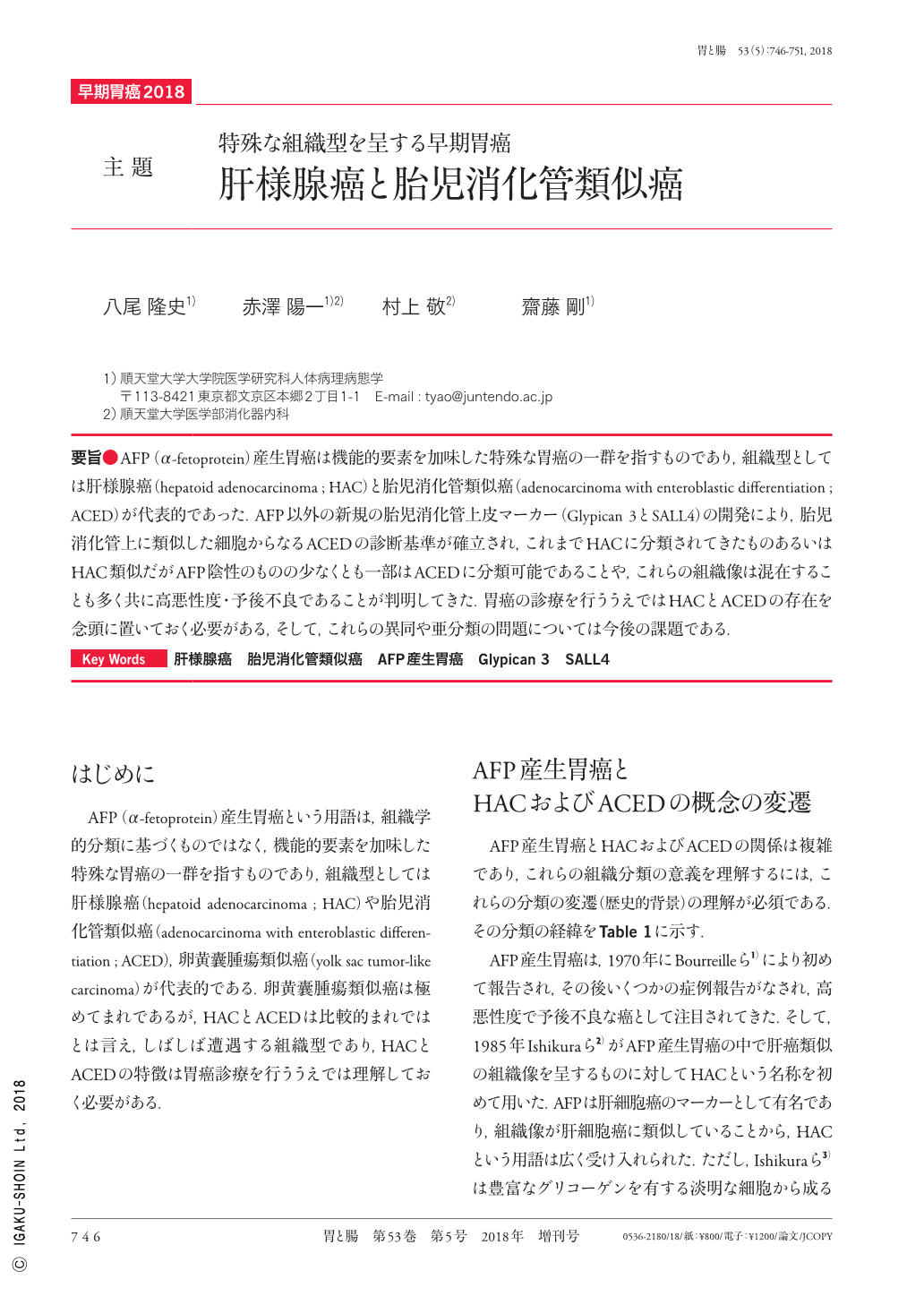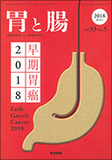Japanese
English
- 有料閲覧
- Abstract 文献概要
- 1ページ目 Look Inside
- 参考文献 Reference
- サイト内被引用 Cited by
要旨●AFP(α-fetoprotein)産生胃癌は機能的要素を加味した特殊な胃癌の一群を指すものであり,組織型としては肝様腺癌(hepatoid adenocarcinoma ; HAC)と胎児消化管類似癌(adenocarcinoma with enteroblastic differentiation ; ACED)が代表的であった.AFP以外の新規の胎児消化管上皮マーカー(Glypican 3とSALL4)の開発により,胎児消化管上に類似した細胞からなるACEDの診断基準が確立され,これまでHACに分類されてきたものあるいはHAC類似だがAFP陰性のものの少なくとも一部はACEDに分類可能であることや,これらの組織像は混在することも多く共に高悪性度・予後不良であることが判明してきた.胃癌の診療を行ううえではHACとACEDの存在を念頭に置いておく必要がある,そして,これらの異同や亜分類の問題については今後の課題である.
HAC(hepatoid adenocarcinoma)and ACED(adenocarcinoma with enteroblastic differentiation)have been identified as histological types representative of AFP(alpha-fetoprotein)-producing gastric carcinomas. In adition to AFP, new fetal gut epithelial markers(Glypican3 and SALL4)became available ; therefore, the diagnostic criteria for ACED has become clearer, allowing to determine that at least some HACs and AFP-negative HAC-like solid carcinomas can be classified as ACED. Moreover, it has become clear that both HAC and ACED often co-exist, displaying an aggressive biological behavior. When treating gastric carcinoma, these special HAC and ACED subtypes should be considered. The significance of distinguishing between HAC and ACED upon histological classification of gastric carcinoma should be further discussed.

Copyright © 2018, Igaku-Shoin Ltd. All rights reserved.


